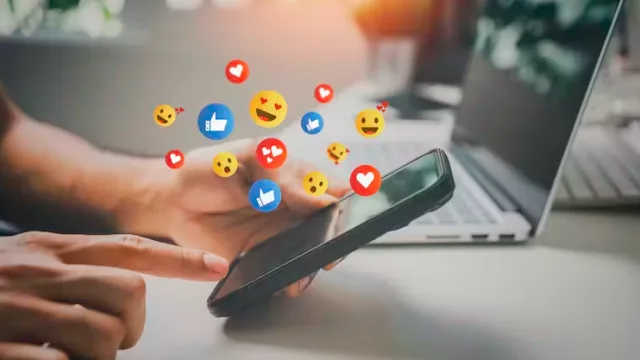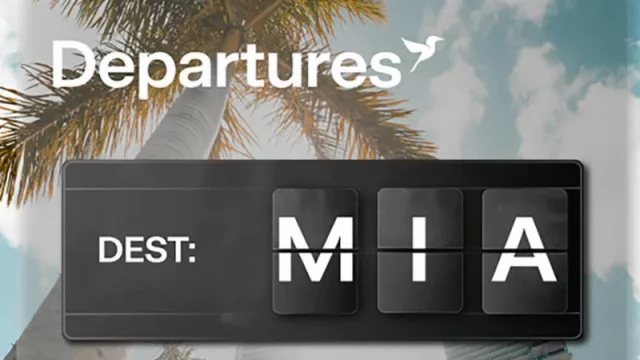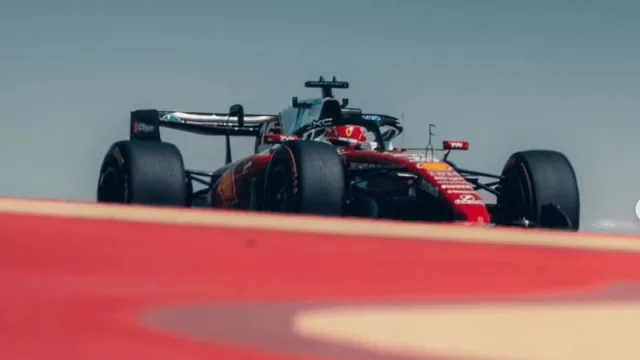The big idea
Social media can be mentally draining. And when mentally drained, you are more likely to be influenced by a high number of likes on posts – even to the point of clicking on ads for products you don’t need or want – according to our recent experiments on how social media affects behavior.
As a professor of advertising, I have studied social media behavior for years. In late 2022, my colleague Eric Haley and I conducted three online studies on Americans aged 18-65 to test how people under various mental loads respond to ads differently.
The control group in each study was given no introductory task – we just had them look at an ad. A second group had to memorize a nine-digit number and then look at the ad. The third group scrolled through their Instagram feed for 30 seconds and then looked at the ad. The first study used an ad for a meal prep service, the second was for ice cream and the third was for coffee beans.
The ad photo and caption were the same for everyone in each group, with only the number of likes manipulated. Participants randomly saw an ad with a few hundred likes or tens of thousands of likes. After viewing the ad, each participant rated how willing they would be to buy the product, and how much mental effort it took to think about the information. The group that used Instagram first were the most likely to want to buy the featured product when there were lots of likes or comments, and they also reported using the most mental effort to assess the ad.
In one study we asked people to explain why they wanted to buy a product, and those in the control group gave simple, rational answers for their choice: “I was thinking of the ice cream flavors and how they would taste.” Or, “I like the ad. It is simple and clean. It gets straight to the point …”
However, those who had just scrolled social media for 30 seconds often gave answers that made no sense. For example, some gave one-word answers like “food” or “plate.” Others explicitly told us it was difficult to process: “It had too many words and options in the picture.”
Why it matters
Researchers refer to this mentally exhausted state as “cognitive overload.” Using social media puts you in this state because you are constantly evaluating different types of text, photo and video posts from so many different people. In the span of several seconds you can see a text from your spouse, a photo from a co-worker, a video from a celebrity and a meme from your brother. All of this scrolling and evaluating leaves us feeling frazzled and scattered.
Imagine asking your roommate if they want to go get pizza. Under normal conditions, the roommate might consider several factors such as cost, hunger, timing or their schedule. Now imagine asking your roommate the same question while they are on the phone with a sick relative after having stepped in dog poop and they also just got a text from their ex while remembering they were late for work. They no longer have the mental energy or resources to logically consider whether pizza for dinner is a good idea. They might just yell “Yeah, sure!” while running inside to clean their shoes.
The one exception to this is when a person has a lot of experience, history or knowledge with the particular product or idea. When this is the case, they are able to think about whether they will actually benefit from buying the advertised item. We confirmed this in the experiment with the ad for coffee beans. In general, coffee lovers will carefully consider many factors – type of bean, roast level, country of origin and more. So even when these people were in a mental fog, they were not persuaded by ads with high metrics.
By understanding how they might be influenced by social media in unconscious ways, consumers can be more thoughtful and deliberate in regulating their use – and hopefully not buy yet another water bottle they don’t need.
What still isn’t known
We don’t yet know which social media platforms are the most draining.
Media-rich environments like TikTok, Instagram Reels and YouTube are presumably the most mentally taxing because they have text, photos, videos, animations and sound – often all at once and overlapping. These platforms are also where advertisers spend a lot of money, as they offer a high return on investment for brands.
Matthew Pittman, Assistant Professor of Advertising and Public Relations, University of Tennessee
This article is republished from The Conversation under a Creative Commons license. Read the original article.
![]()












Tu opinión enriquece este artículo: